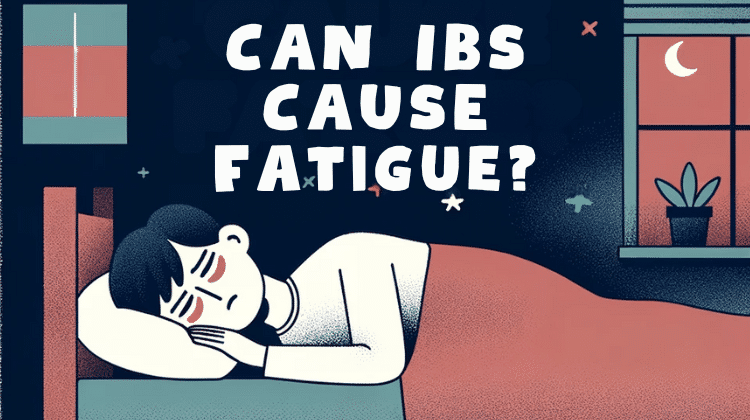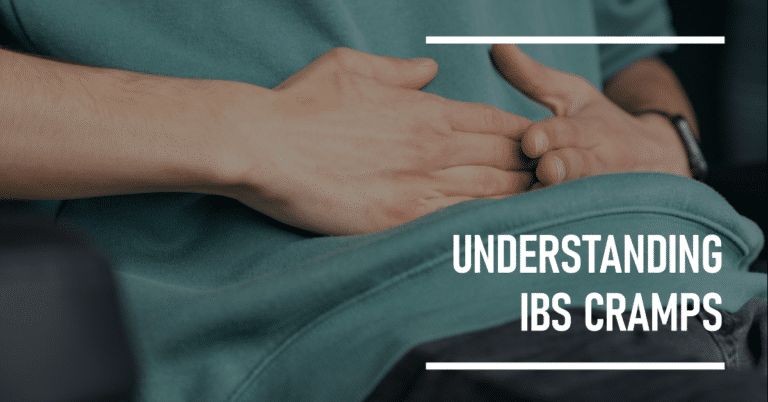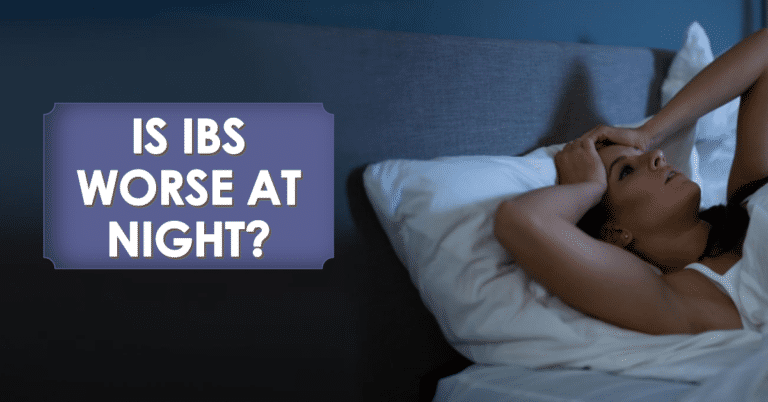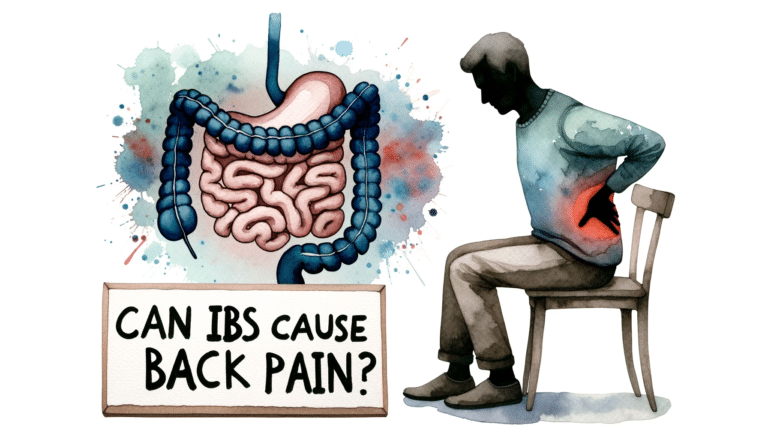What Is an IBS Flare Up? Symptoms, Causes, and Treatments

Everyone experiences the occasional stomachache or digestive distress – but did you know these pains could be signs of something more chronic?
IBS, or Irritable Bowel Syndrome, is a debilitating condition that affects around 11% of people globally and can cause intense, frequent flare-ups if not managed properly [1].
But what is an IBS flare up, exactly? And how can it affect your life?
Put simply, it’s a period of worsening symptoms, including but not limited to:
- Stomach cramps
- Bloating
- Diarrhea
- Constipation
- Gas and flatulence
Read on to uncover the answers you need to better manage this elusive and often misunderstood condition.
What Is IBS?
IBS (Irritable Bowel Syndrome) is a common problem that millions of people have to deal with.
It’s all about the gut being overly sensitive and, as such, reacting to certain foods, stress levels, and other triggers by manifesting all kinds of gastrointestinal distress.
Whether it’s gas, bloating, cramps, discomfort in the stomach region, loose stools, or constipation, IBS can make day-to-day life quite unpleasant if left unchecked.
So why not take control and start learning more about this pesky condition to eliminate its symptoms?
Even though IBS can come and go, making lifestyle adjustments and dietary changes (including maybe a bit more fiber), you can help keep your symptoms in check (more on this later).
What Is An IBS Flare Up? – Symptoms to Look Out For
You probably know how severe these episodes can be if your body has been under constant attack from IBS symptoms.
Everyone experiences IBS differently, but the most common symptoms include bloating, nausea, abdominal pain and cramps, diarrhea, and constipation.
Unfortunately, there’s no one-size-fits-all solution to relieve symptoms.
Still, it’s important to remember that you’re not alone in this battle – millions of other people worldwide are fighting their own IBS battles too!
What Causes an IBS Flare-Up?
Remember the famous Forrest Gump quote, ‘Life is like a box of chocolates, you never know what you’re gonna get’? Well, this phrase can apply to IBS symptoms too.
Stress, hormones, certain medications… it can be difficult to know where to start when identifying potential triggers.
However, with a good diet, regular exercise, and a consistent sleep schedule, you can significantly reduce your chances of experiencing an IBS flare-up.
It may require some detective work to determine which foods cause your symptoms and then avoid them, but it’ll be worth it in the end!
How Long Does An IBS Flare-Up Last?
Ever wondered how long an IBS flare-up could last? It’s a question that has been plaguing sufferers of IBS for years! The answer is – it varies.
IBS is an unpredictable and mysterious disorder, and its flare-ups can be equally unpredictable.
Some flare-ups can last days or weeks, while others can linger for months on end.
Sadly, IBS is usually a lifelong problem, too – so even after the flare-up has gone away, it may still return.
Managing flare-ups is a part of life for those living with IBS.
How to Manage an IBS Flare-Up At Home
Are you dealing with an uncomfortable IBS flare-up? Keeping your digestive system on track can feel like a never-ending battle!
But with a few simple steps, you can manage common symptoms of an IBS flare-up right at home.
Here’s a list of how to do it:
- Get moving! Exercise can make a world of difference in alleviating IBS-related discomfort and improving digestion.
- Psyllium husk is an excellent source of soluble fiber commonly used to treat IBS symptoms, including constipation and diarrhea [2].
- Avoid sugary, processed, or fried foods and choose fresh fruit and vegetables.
- Ensure you don’t overdo it on dairy products—lactose can often worsen symptoms.
- Cut back on caffeine and alcohol, which can aggravate flare-ups.
- Try supplementing with probiotics to help restore good gut bacteria and digestive balance.
These simple steps can help you get back to feeling your best in no time. Bonus: you may even learn some healthier bowel habits and discover new tricks to dealing with IBS flare-ups in the future.
So don’t let an IBS flare-up get you down. With these tips, you can manage your condition at home and regain control!
The Role Of Low FODMAP Diets in Managing IBS
Taking the low FODMAP diet plunge was one of the best decisions I’ve ever made in managing my IBS.
By following this unique approach under the supervision of a qualified dietician, I could identify which trigger foods were causing issues, enabling me to make sure I cut them out as much as possible.
The reintroduction phase then allowed me to test out certain items in a safe and controlled manner, ensuring I could limit my intake if symptoms returned.
Low FODMAP really is an incredible way to get your digestive system back on track – and these are lessons that have stayed with me to this day!
Final Thoughts from an IBS Sufferer
IBS flare-ups can be highly uncomfortable and downright painful, but they don’t have to take over your life.
With the proper diet and lifestyle choices, you can manage this condition and get on with enjoying the things you love.
Ignoring symptoms of an IBS attack doesn’t make the pain disappear, so if you’re having trouble managing your symptoms, don’t be afraid to seek medical advice.
And remember: a flare-up isn’t forever—as long as you keep looking after yourself and make a solid effort to avoid trigger foods, you’ll be on the right path to managing your IBS.
I’m someone who suffers from IBS AND celiac disease, so I know the struggle is real.
But with careful attention, healthy eating habits, and understanding your triggers, you can take control of this condition and lessen its impact on your everyday life.
FAQs
How do you calm severe IBS?
Managing stress and anxiety is a major component for soothing the symptoms of more severe cases of IBS. When feeling anxious or stressed, practice relaxation techniques such as meditation, deep breathing, or progressive muscle relaxation. Eating a balanced diet and avoiding foods that irritate the digestive tract can also help keep symptoms in check.
Learn more about what helps IBS flare ups.
Should you rest with an IBS flare up?
Yes, allowing your body to have downtime during IBS attacks is important. Resting will alleviate some physical pressure and give your body time to heal from the flare-up. It is also recommended to reduce physical activity until symptoms subside.
Does IBS cause excruciating pain?
Yes, IBS can produce either gentle or agonizing abdominal pain. Severe stomach pain, however, can be incapacitating, and symptoms may last for hours at a stretch. Pain linked with IBS may feel piercing, cramping, or burning in nature, and the pain regularly worsens after eating.
What can I eat when my IBS flares up?
It’s best to stick with mild foods that won’t irritate your digestive system during a flare up. High-soluble fiber choices like oats, bananas, sweet potatoes, etc., plus lean proteins like fish or tofu are safe options during an IBS flare up. Avoid high-insoluble fiber items such as cruciferous vegetables (cauliflower and broccoli), legumes (beans and lentils), etc., since these may worsen your symptoms.
What are the symptoms of a severe irritable bowel syndrome flare up?
Indicators of a severe IBS episode include intense abdominal cramps or pain lasting more than two days; extreme diarrhea; frequent bouts of urgent bowel movements; rectal bleeding; uncontrollable gas; nausea; vomiting; bloating; fatigue; and loss of appetite.
Disclaimer: This content is based on my personal experience as an individual diagnosed with celiac disease and IBS (Irritable Bowel Syndrome) who follows a strict gluten-free diet. This does not constitute medical advice. Please consult a medical professional, nutritionist, or qualified dietitian for personalized, professional advice.






